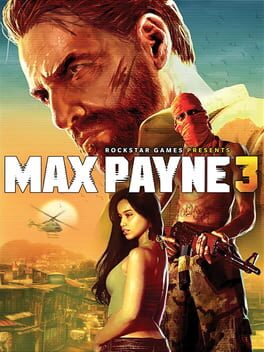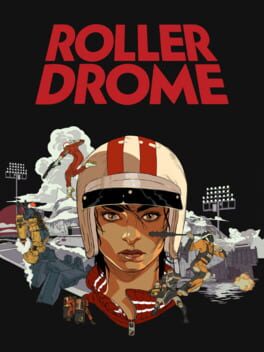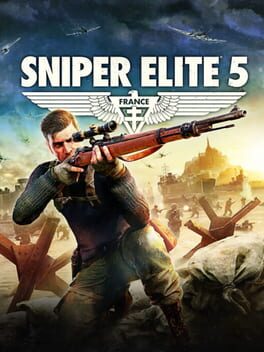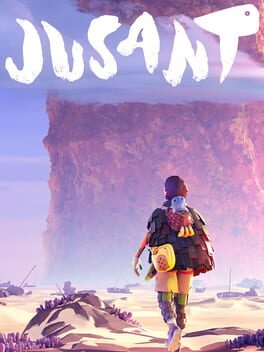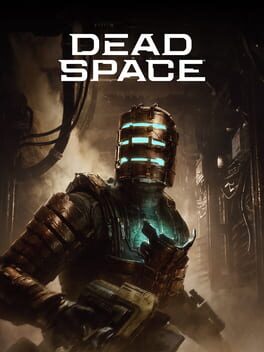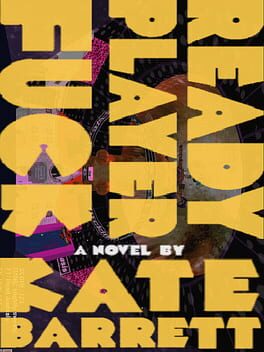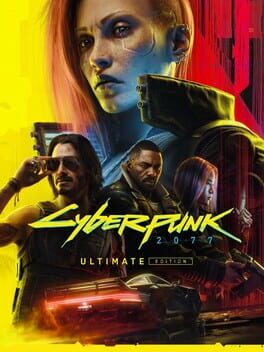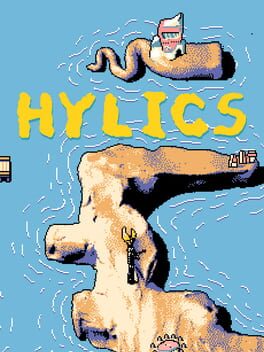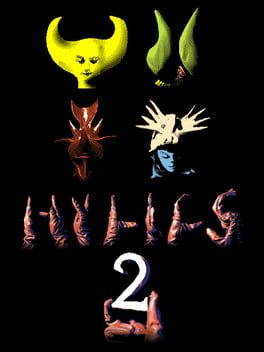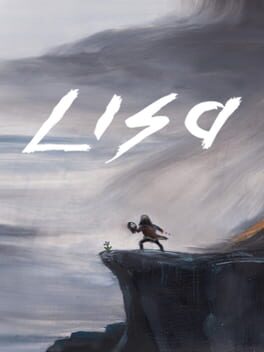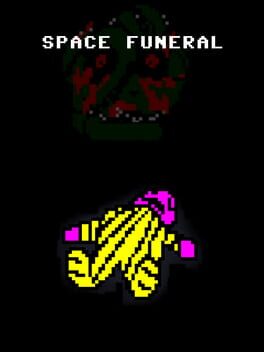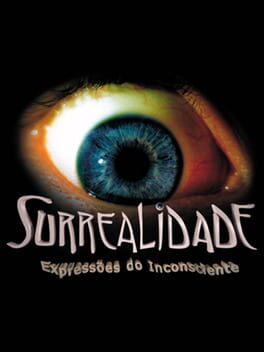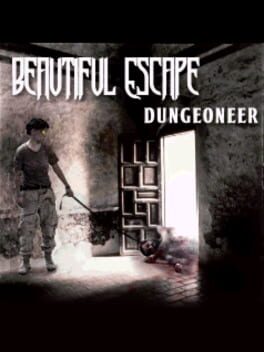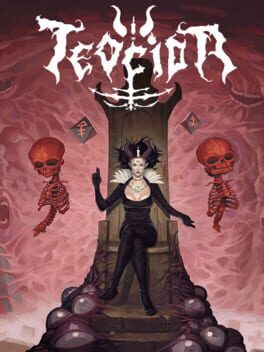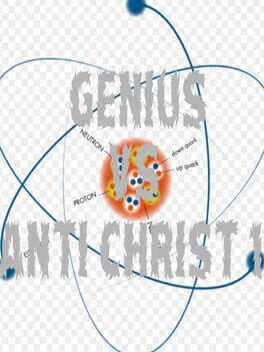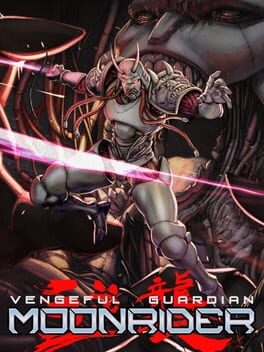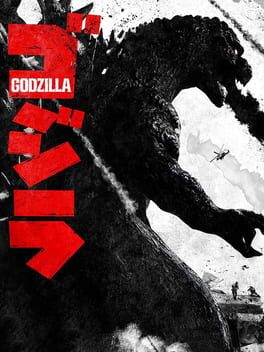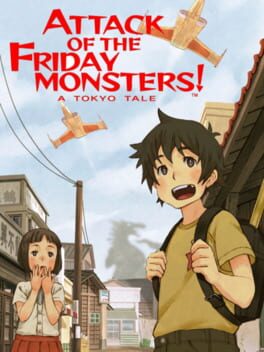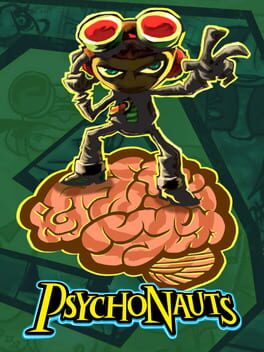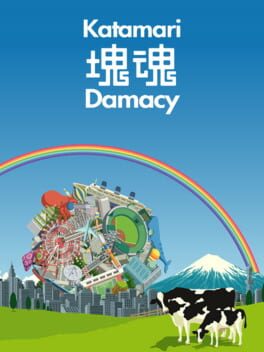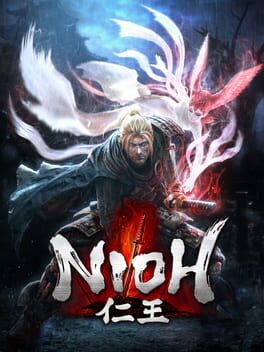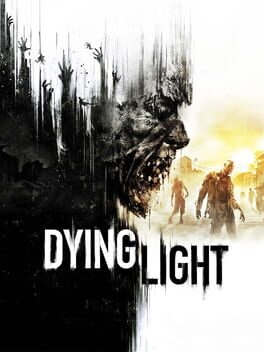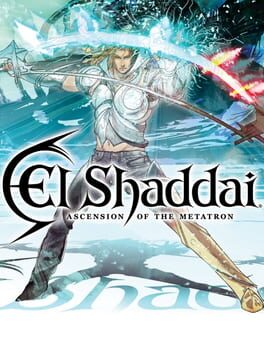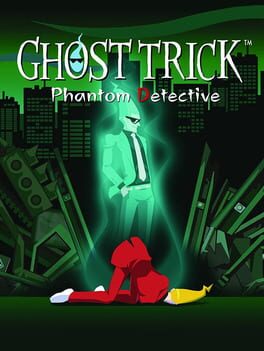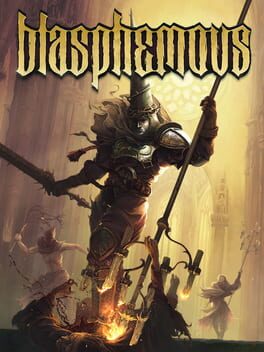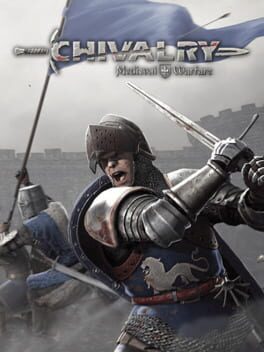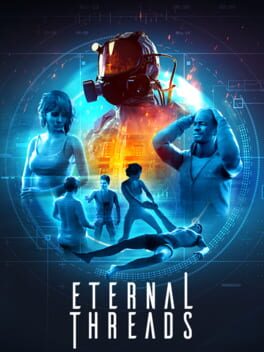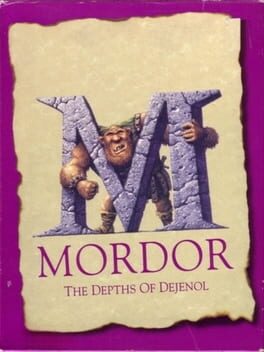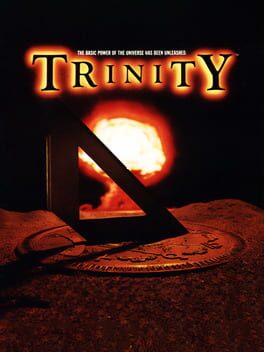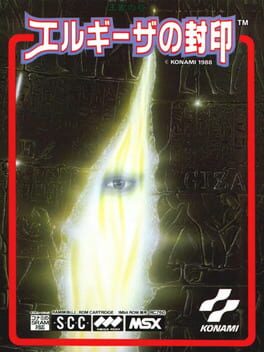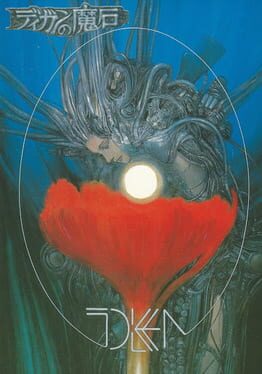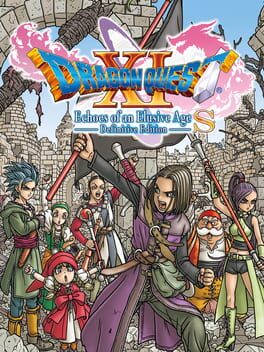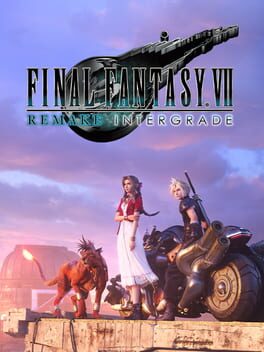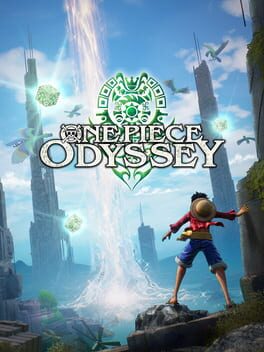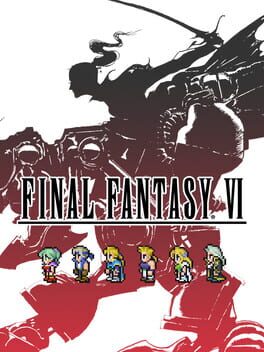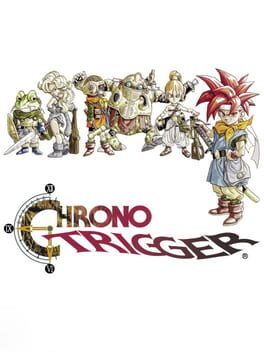saintfrog
1056 reviews liked by saintfrog
Max Payne 3
2012
vendo minha namorada jogar isso aqui nos últimos dias, sem colocar a mão no controle e sentir meus receptores de dopamina vibrarem toda vez q eu clicava na cara de um PM durante um shoot dogde, meio q me fez ter a certeza de q esse é um dos AAA mais racistas de todos os tempos.
ao menos na maioria dos jogos onde um protagonista norte-americano detona algum país de terceiro-mundo, ainda parece existir um certo esforço pra n pintar o lugar como um eterno inferno sobre a terra. existe um certo esforço para contratar gente q fala xangainês em Kane & Lynch 2, ao menos inventar um país fictício em Resident Evil 5 ou um monte de banana republics aleatórias nos Jagged Alliances, Far Cries e seus derivados.
ao menos a maioria dos protagonistas desses jogos n tratam constantemente o país onde estão como uma fossa séptica infestada de malária, pra depois meter um papo pau-mole autoconsciente sobre ser um salvador gringo em território latino-americano. autoconsciência no texto lixo desse jogo n faz lá muita diferença quando claramente nenhum brasileiro fez um proof-reading do roteiro ao menos pros diálogos em português parecerem algo q realmente sairia da boca de alguém. ao menos esses jogos n tem um roteiro do Dan Houser tentando fazer algum comentário real sobre militarização da segurança pública, corrupção ou violência no Brasil sem pesquisa ou vivência alguma. porra, até o Saci-pererê e o Curupira são vilificados aqui! maluquice!
só meio q odeio esse jogo mesmo. e até hj a melhor representação de São Paulo em um videogame é em Incidente em Varginha (1998) pra DOS durante a missão da Praça da Sé. esse sim é kino, viu.
ao menos na maioria dos jogos onde um protagonista norte-americano detona algum país de terceiro-mundo, ainda parece existir um certo esforço pra n pintar o lugar como um eterno inferno sobre a terra. existe um certo esforço para contratar gente q fala xangainês em Kane & Lynch 2, ao menos inventar um país fictício em Resident Evil 5 ou um monte de banana republics aleatórias nos Jagged Alliances, Far Cries e seus derivados.
ao menos a maioria dos protagonistas desses jogos n tratam constantemente o país onde estão como uma fossa séptica infestada de malária, pra depois meter um papo pau-mole autoconsciente sobre ser um salvador gringo em território latino-americano. autoconsciência no texto lixo desse jogo n faz lá muita diferença quando claramente nenhum brasileiro fez um proof-reading do roteiro ao menos pros diálogos em português parecerem algo q realmente sairia da boca de alguém. ao menos esses jogos n tem um roteiro do Dan Houser tentando fazer algum comentário real sobre militarização da segurança pública, corrupção ou violência no Brasil sem pesquisa ou vivência alguma. porra, até o Saci-pererê e o Curupira são vilificados aqui! maluquice!
só meio q odeio esse jogo mesmo. e até hj a melhor representação de São Paulo em um videogame é em Incidente em Varginha (1998) pra DOS durante a missão da Praça da Sé. esse sim é kino, viu.
Dragon's Dogma II
2024
12 years on from the strange, incomplete original, DD2 is more of the same, uneasily sitting between the uncompromising Souls series & more conventional narrative ARPGs. At times evoking a desolate offline MMO, DD2 is at its best when out in the wilds, the sun setting at your back & two or more beasts landing on the path ahead, all Arising out of dynamic systems.
The main questline unfortunately does not play to these strengths, with much of Act I confined to the capital & some really dull writing. Fortunately, writing does not maketh a game, and side-quests that take you out into the unreasonably huge map are much more interesting, and really need to be sought out in the crowds and corners of the world. Keeping track of these with the bizarre quest tracker is uneven and obtuse: you’re either reading the landscape and tracing clues or just beating your head against a wall figuring out what the game requires of you.
Dragon’s Dogma 2 is singular, not quite fully realised, a beautifully rendered physics-heavy oddity. The art direction is profoundly generic, but so deceptively understated it at times resembles a Ray Harryhausen film, full of weight, movement and character. DD2 makes you feel like you have friends, albeit stupid friends, who'd throw themselves off a cliff for a view of yonder.
The main questline unfortunately does not play to these strengths, with much of Act I confined to the capital & some really dull writing. Fortunately, writing does not maketh a game, and side-quests that take you out into the unreasonably huge map are much more interesting, and really need to be sought out in the crowds and corners of the world. Keeping track of these with the bizarre quest tracker is uneven and obtuse: you’re either reading the landscape and tracing clues or just beating your head against a wall figuring out what the game requires of you.
Dragon’s Dogma 2 is singular, not quite fully realised, a beautifully rendered physics-heavy oddity. The art direction is profoundly generic, but so deceptively understated it at times resembles a Ray Harryhausen film, full of weight, movement and character. DD2 makes you feel like you have friends, albeit stupid friends, who'd throw themselves off a cliff for a view of yonder.
Rollerdrome
2022
É uma ideia fantástica executada com uma identidade bem única, mas a junção dos seus dois gêneros podia ser melhor implementada e resulta em um gameplay loop simplório que eu não tive muita vontade de me aprofundar. Um exemplo: cada nível apresenta vários desafiozinhos que ditam a progressão do jogo - uma herança dos Tony Hawks, onde (até onde eu lembro) também eram necessários para progredir no jogo. A diferença aqui é que esses desafios de fazer manobras e truques bacanudos se encaixam perfeiramente em Tony Hawk (jogos sobre fazer manobras e truques bacanudos) e não em Rollerdrome (jogo onde os truques bacanudos são uma ferramenta para recarregar munição e o objetivo principal é matar carinhas) então acabam parecendo mais encheção de linguiça do que era pra ser.
Apesar disso eu diria que vale a pena tentar se a premissa te interessa, pra mim o seu ponto mais forte foi jogar pelo ranking - Rollerdrome recompensa não só pensamento rápido mas também planejamento de rotas e posicionamento de inimigos, e é muito gratificante você botar em prática seu flowchartzinho em cada nível e receber um S rank no final.
Não diria que existe muita experimentação em seu combate, mas é legal descobrir e otimizar as melhores maneiras para lidar com os inimigos mais chatinhos (Depois que você descobre que o tiro de sniper carregado dá 1-hit kill no lek do raio lazer o jogo fica bem mais doido). Além disso, também não senti que o kit de armas proporciona muita experimentação ou criatividade vinda do jogador, as 4 armas tem usos distintos e limitados se comparar com armas de outros character actions. Isso combinado com o comportamento unidimensional dos inimigos e o foco em recompensar trajetos bem planejados deixa claro porque não existe um modo sem fim estilo Cybergrind aqui, mas po se a gente tá falando de outros modos de jogo faltou um level editor igual nos Tony Hawk hein... just saying... it would go hard...
Apesar disso eu diria que vale a pena tentar se a premissa te interessa, pra mim o seu ponto mais forte foi jogar pelo ranking - Rollerdrome recompensa não só pensamento rápido mas também planejamento de rotas e posicionamento de inimigos, e é muito gratificante você botar em prática seu flowchartzinho em cada nível e receber um S rank no final.
Não diria que existe muita experimentação em seu combate, mas é legal descobrir e otimizar as melhores maneiras para lidar com os inimigos mais chatinhos (Depois que você descobre que o tiro de sniper carregado dá 1-hit kill no lek do raio lazer o jogo fica bem mais doido). Além disso, também não senti que o kit de armas proporciona muita experimentação ou criatividade vinda do jogador, as 4 armas tem usos distintos e limitados se comparar com armas de outros character actions. Isso combinado com o comportamento unidimensional dos inimigos e o foco em recompensar trajetos bem planejados deixa claro porque não existe um modo sem fim estilo Cybergrind aqui, mas po se a gente tá falando de outros modos de jogo faltou um level editor igual nos Tony Hawk hein... just saying... it would go hard...
Sniper Elite 5
2022
Jusant
2023
A word for Guillaume Ferran's musical delicacy here: This world is full of visual wind. Pastel minerals and all that jazz. Sound quarrels with space. The stone is teeming with human voices, humane thoughts. But he brings a throughline. A clarity of purpose to the evocative building blocks of culture put in place here. Nature is not a phantasm - it is a constant object of animated dialogue. Breath after breath. All we need do is listen.
Jusant does not care for the pain of the ascension. All it sees is a dark passage - the colours held within. Good. Dwell too long and you lose sight of what truly matters: Our toil, imagined or otherwise, will always bring us closer to shape. Memory is nothing but fickle, watery matter. We bend and love leaks. The dead and the unborn watch us. Time ebbs and flows in my body - this house of all houses.
Storm gathers. This other place. This unmoored Babel. It's not coming back. Our efforts were in vain and only we remain. Waiting for rain to hit the shore - soaked by association. That kind of primeval sensation software could only recreate in the aggregate. But that's the beauty of memory. There isn't a single drop of rain in Jusant. Yet here I am.
Souvenirs d'une éclaboussure.
Jusant does not care for the pain of the ascension. All it sees is a dark passage - the colours held within. Good. Dwell too long and you lose sight of what truly matters: Our toil, imagined or otherwise, will always bring us closer to shape. Memory is nothing but fickle, watery matter. We bend and love leaks. The dead and the unborn watch us. Time ebbs and flows in my body - this house of all houses.
Storm gathers. This other place. This unmoored Babel. It's not coming back. Our efforts were in vain and only we remain. Waiting for rain to hit the shore - soaked by association. That kind of primeval sensation software could only recreate in the aggregate. But that's the beauty of memory. There isn't a single drop of rain in Jusant. Yet here I am.
Souvenirs d'une éclaboussure.
Firework
2021
É necessária uma delicadeza muito especial para fazer, de uma história de suspense, várias histórias de amor. Mas a resposta está na tragédia: o mal original está muito distante, e vivemos apenas suas consequências. Nesse contexto, os símbolos do horror têm uma dimensão de profunda, inescapável tristeza, e então faz perfeito sentido que o jogo te guie no cabresto: não há quebra-cabeças para resolver. Os fantasmas estão implorando para que você conheça a história deles. O que você tem que resolver é aquilo que eles também não entendem sobre suas próprias histórias. É também aí que a fronteira do psicológico e do sobrenatural precisa ser rompida. Inúmeras janelas irreais para uma realidade acontecem por mudanças de ponto de vista e técnica narrativa -- mas não é à toa que, o tempo todo, existem efeitos de tela e moldura. O efeito sobrenatural é psicológico, tanto sobre Lixuan quanto sobre você, na medida em que você só pode compreender aquilo que as entidades que te assustam compreendem.
Por isso, a relação com os vivos e com os mortos tem tanta força. A tragédia já aconteceu, mas continua a acontecer mesmo que você a desvende. O mundo de Firework é inteiro de papel, literalmente: e no papel que se escrevem as verdades a serem descobertas, é do papel que se tiram os simbolos para materializar os desejos dos personagens e é no papel que sai uma foto tirada sem querer numa cabine. E papel pega fogo.
Por isso, a relação com os vivos e com os mortos tem tanta força. A tragédia já aconteceu, mas continua a acontecer mesmo que você a desvende. O mundo de Firework é inteiro de papel, literalmente: e no papel que se escrevem as verdades a serem descobertas, é do papel que se tiram os simbolos para materializar os desejos dos personagens e é no papel que sai uma foto tirada sem querer numa cabine. E papel pega fogo.
What the fuck.. I thought the 3DS was for Pokemonsters and Mario... What is this SOVL....
The vibes are impeccable. The atmosphere is unmatched. The press turn system is, obviously, good. The crits are brutal. The first dungeon is harder than probably all of Persona 5 (random stray slander I haven't played it). The monsters are... PNGs.... The world map... uh.. anyway
The story is mid, but the worldbuilding saves it. It's at least always interesting, but I mean, the overall plot is just SMT like, again, so not much room there. I appreciate the allegories and symbolism and such as always, but it's not exactly a character driven franchise. That's fine.
Surprisingly great English voice acting, particularly Burroughs. I miss her
The vibes are impeccable. The atmosphere is unmatched. The press turn system is, obviously, good. The crits are brutal. The first dungeon is harder than probably all of Persona 5 (random stray slander I haven't played it). The monsters are... PNGs.... The world map... uh.. anyway
The story is mid, but the worldbuilding saves it. It's at least always interesting, but I mean, the overall plot is just SMT like, again, so not much room there. I appreciate the allegories and symbolism and such as always, but it's not exactly a character driven franchise. That's fine.
Surprisingly great English voice acting, particularly Burroughs. I miss her
Dead Space
2023
Impressionado com muita coisa aqui. O alcance do horror ambiental que o jogo traz é de uma execução técnica esplendorosa - talvez nunca antes vista do gênero, que é popular, mas nem sempre rentável na indústria, e por isso recebe orçamentos mais limitantes.
O jogo é angustiante mesmo no ócio, com um trabalho sonoro fantástico: os arranjos arranhados finíssimos ficará marcado em minha alma, assim como as batidas de coração aceleradas que acompanhavam as minhas. Quando parte para a ação, não pestaneja e traz muitas opções e modos de agir diferentes, assim como situações variadas incomuns para o gênero. Abraça o espaço e não larga dele, sempre te lembrando da solidão e loucura desse mundo tão opressivo e escuro.
Surpresa agradável foi a narrativa. Rica, instigante e com reviravoltas até demais até o fim. O mundo construído me deu vontade de jogar a sequência, fato que nem me passava muito pela cabeça.
O jogo é angustiante mesmo no ócio, com um trabalho sonoro fantástico: os arranjos arranhados finíssimos ficará marcado em minha alma, assim como as batidas de coração aceleradas que acompanhavam as minhas. Quando parte para a ação, não pestaneja e traz muitas opções e modos de agir diferentes, assim como situações variadas incomuns para o gênero. Abraça o espaço e não larga dele, sempre te lembrando da solidão e loucura desse mundo tão opressivo e escuro.
Surpresa agradável foi a narrativa. Rica, instigante e com reviravoltas até demais até o fim. O mundo construído me deu vontade de jogar a sequência, fato que nem me passava muito pela cabeça.
Ready Player Fuck
2017
A Cultura nerd precisa ser revisada.
É uma cultura que sequestra obras de arte em um culto egocentrico e excludente. Pessoas resgatam símbolos das obras para se identificarem e vão enaltecer aqeuelus que reconhecem esses símbolos, que conseguem ler as referências e se sentem superiores por conta disso, mais popularmente culturados.
Ready Player Fuck sequestra esses símbolos em uma sátira divertida, engraçada e que não se importa com propriedade intelectual. Usando esses símbolos para mostrar o quão tosco e sem noção é esse imaginário coletivo do nerd boomer, que adora essas imagens religiosamente.
É uma cultura que sequestra obras de arte em um culto egocentrico e excludente. Pessoas resgatam símbolos das obras para se identificarem e vão enaltecer aqeuelus que reconhecem esses símbolos, que conseguem ler as referências e se sentem superiores por conta disso, mais popularmente culturados.
Ready Player Fuck sequestra esses símbolos em uma sátira divertida, engraçada e que não se importa com propriedade intelectual. Usando esses símbolos para mostrar o quão tosco e sem noção é esse imaginário coletivo do nerd boomer, que adora essas imagens religiosamente.
"Loving V"
Mascara drenched-tears and gunfire. In the end I just stuck the iron in my mouth, pulled the trigger.
As V and Johnny sat on the roof of Misty's Esoterica, their voices drowned-out in the noises of Night City, Cyberpunk pulls me away at last, removes us from subjectivity by panning the camera out of this digitally-stricken body and towards a wider angle of two trajectories mercifully coming to a stop - deciding they wouldn’t play the game anymore. “Cleanest, least bloody option” she said. My first-person absorption within the computer-game was hence wholly consumed, putting V in front of me in a way that felt true to the experience of playing 2077’s broken, shimmering jank, the achievement of ending one’s life making sense of both our acts of roleplaying; mine as a holistic, experiential avenue and hers as dramatic diegesis given shape through the only language video-games seem to understand well enough, that is, the accumulation - and ultimate bubbling - of violence.
Shit felt terrible, no questions about it, something of the unfinished and unachievable kind - the right kind of wrong for once, first-person shooting in the directness of your face, forever. Suicide is exhaustion given infinite form and no language to remedy it’s omnipresence - that's no easy sentiment to tease out of me and it sure as hell ain’t a virtual one but Cyberpunk did succeed and I do not mean it as just another rejection of failed ludonarrative ventures, though this particular ending does carry with it an air of disdain for your decision to not act out the blaze of glory-seeking bravado that’s meant to close out the story. But I was exhausted. The wild circle of Cyberpunk 2077 goes both ways; cornucopia as trash and trash as cornucopia. All the narrative swings and systemic inconsistencies that fed from the ugliness of the work's dangling bits and in turn shone back some of their own light to form genuinely unique video-game sequences that deserve to be examined and contextualized on their own, beyond the meme, formed a world alright. All of it was too much. I could not play a minute longer, had - many times - threatened to pull the plug on 2020's most wildly surreal corporate art experiment and so finally I did. Hit the proverbial Blackwall in a sense. The artificial prose and passes ruling on this empire of code could not - and then would not - accommodate my presence within their simulation. Doesn't matter how towering or complex, a simple data block which we fuel with credence for the time it takes to wrestle with its fictitious circuitry remains just that in spite of itself. V and I were simply tired of sharing this body - a veritable second Silverhand I had become -, me attempting to imbue her with an essence that was never really there in the first place whilst she roared and raged to stay alive for another day or another hour, to exist inside the megalopolis of the dark future whatever the cost.
In the middle of this mounting heap of conflicted desires lied an encounter producing atomic material. Proper character-moments and personal voids, dejected ones. Times like “Automatic Love” and times like Takemura. Enough of those will fry your brains out. Make sure I can never come back nor forget Night City. From my continuous first-person to theirs - a third vision, on top of that apartment complex, saying things but really saying nothing at all because nothing is left to be said. And they're just there. And then they're not. And in this split-second where the linearity of your decisions establishes itself - this shift where the verb “interact” becomes “witness” - you realize, or at least I did, that you felt (no, feel) a certain type of way about her. The choice - if ever there was one - had been made from the start; all I did was press the button in an honest mistake. Enough play, more flatline.
“And in the bloodlit dark behind his eyes, silver phosphenes boiling in from the edge of space,
hypnagogic images jerking past like film compiled from random frames.
Symbols, figures, faces, a blurred, fragmented mandala of visual information.
Please, he prayed, now–”
Now the whole bathroom’s messed up and there’s vomit in the sink. Daddy is naked. Daddy’s blown a billion dollars down the drain in search of ray-traced fields yonder only leaving third-degree burns in his wake. This is not a video-game-centric problem but Video–games are the medium. Two years later, Phantom Liberty brings me back. V is brought forward from the dead, still fucking unstable, still drawing me in and I’m thinking to myself “Now is the moment”. Brand new chain, brand new RTX. I’m back not out of Edgerunners-fever but perhaps plain naïveté, thinking that I knew a way out. I knew, at least, of the Tower, this new epilogue that would let my V live out the rest of her days in Night City free of Silverhand’s cancerous engram, a character somewhat damaged and reformed - so I cultivated a plan. If my first journey was to be defined by the game’s egregore, then my second outing would act as its negative. Let blights and blessings wash over V in equal measures, see where the world of Cyberpunk would take me this time. A descent into roleplaying. Towards-
“A gray disk, the color of Chiba sky.
Now–”
A nowness. The septic tank of frame generation and path-tracing galore. Lights softly lashing out. A hundred paces into the grid. Immersion has always been at the heart of the 2077 project. A nowness, by which I mean the immediacy with which the game attempts to hold your attention and force you to engage with its world through the eyes of a digital construct. No computer software captures the push-and-pull of first-person like Cyberpunk which makes the failure deeper, almost more cutting. Soft games versus hard games - with 2077 in-between, attempting a hard act without the substantive arguments, building itself around a prefabricated fantasia of the subjective camera as this sort of all-encompassing dramatic cliché of immersion where the virtual gestures performed by V’s body are set and ordained through expensive cinematography instead of gameplay - draping itself in the robes of Deus Ex even as the meat falls off the bones to reveal an intense, almost angry focus on being a shooter first and foremost. It's that kind of teleguided rhythm which dictates the juiciest chunks of Cyberpunk's action-roleplay; a game that simply feels best when the gatling sings the cries of a thousand dead punk babies. And to these we add our faerie touch - a dialogue system skimming through flavour options as heavy stakes and lush set-pieces orient our gaze throughout CDPR’s theatrical exposé.
A nowness. When V shouts at the top of her lungs, when she’s desperately crawling her way out of a sky-wide hole. A nowness is when she touches another human being’s face, when she is touched and being looked at herself - which is why scenes like our confession at Clouds or Aurore’s appearance in «You Know My Name» hit such a fever. In their paranoid arousal lies a sincere expression of the hardships that come with human interaction in our day and age of disembodiment; searching for closure in a sex club, going full-on cyberpsycho, all of us, together alone. There and now. V is not, in other words, a character who expresses herself a lot through violence at the hands of the controller. In order to stab/stealth we must suppress this desire to get closer to the world she inhabits - replace it with the utility of conflict-solving, which is not to say that this violence serves no purpose. It is the sensory-deprivation chamber, the numbness you feel after sleeping the day-off; this dream that despondency fed every time you took the elevator to the 8th floor of H10 and were met with an aesthetical fart on the telly or every time the core was laid bare, exposed by bugs and cogs - because, yeah, everything feels slow, sluggish in Night City, as if the interplay between V and her numerous points of acquisition never quite met their intended target and instead underlined the facade of the whole structure in a way that feels relevant to the text, a text, not the one Cyberpunk 2077 is writing but the one written about and around it, a game that’s more than a game, filled to the brim with dead things that pretend to be alive. Anything to feel something in this place removed - so why not a shotgun blast?
A nowness without which the text of Cyberpunk would feel half-superfluous in truth. Suicide doesn’t happen without these empty pockets of play. My V needed this violence, this dishonesty, for her death to make sense of it all. But my affection only happens in the game’s jello, in this space where play's internal logic is superseded by the outbursts of tactile production riches. Sequences like the Heist or the Chimera boss-fight - one of Phantom Liberty’s many highlights -, our countless segues into the city's underbelly as societal observations games were never really well equipped to answer in the first place but which 2077 tackles with surprising softness at times, punctuations in the routine of car rides and murder contracts; the lead in a detective story that’s always about touch - whether pyrotechnical or intimate - at the end of the tunnel. A nowness - an entrapment. It’s all the same to V.
“Disk beginning to rotate, faster, becoming a sphere of palergray.
Expanding-- And flowed, flowered for him, fluid neon origami trick,
the unfolding of his distance less home, his country, transparent 3D chessboard extending to infinity.”
Sometimes I get so tense while playing games that I forget to breathe. My fingers tense up, just enough that the tendons jerk back a little but not enough that it actually hurts in the long run, intermittently gritted teeth ease their pressure every dozens of second or so to let me swallow a little and I lean forward from the back of my chair like anyone who’s ever lost the first two rounds in a LAN. What I am describing here is not the buildup of tension that hard games tend to inflict upon the player - there’s joy (and an exchange) happening in that trade of blows, I think. No, what this situation feels like to me is a voicelessness in the matter of the video-game. The game having and very much using its voice to suppress mine as an action that does not scream of authorial intent so much as it aims to render the player mute. This is what these worlds, in their openness, do to us. They bloat and gurgle most - if any - possibility for expression to emerge within their likeness - to impart a certain elasticity of being to the fiction and its characters. For play to go in more than one direction at a time and meet these undercurrents, make them integral parts of the text. Night City is different in that it’s aesthetically crude and conscious of what the city is to us (what drives the player to seek out its spectacle) yet, as the strongest - sometimes only - voice in play by virtue of its open-ended nature, it cannot let go of two conceptions essential to its successes ; an idea of the player as a set of neurotic impulses (which we are) drawn in parallel to its own view of itself as a space that both seeks and belies simulation. Peaceful cohabitation between Cyberpunk’s slew of systems was never on the cards and so the most salient question anyone can ask of 2077 isn’t whether it answers every political point of aesthetics that’s been ascribed - rather pointlessly - to the genre but instead see a translation of play’s tropes into an actuation of its game-world through the following question: Is Night City A Walkable Paradise?
“Inner eye opening to the stepped scarlet pyramid of the Eastern Seaboard Fission Authority burning beyond the green cubes of Mitsubishi Bank of America,
and high and very far away he saw the spiral arms of military systems, forever beyond his reach.”
In one of my favourite early passages of Neuromancer, William Gibson describes a nowness. Through richly-textured streams of consciousness we get a glimpse of protagonist Case’s emotional ecstasy on the threshold between flesh and computer, a sort of strobe-lights reel akin to the religious experience of being visited by the Internet’s composite angel. This encounter with the world as perceived and rendered from our screens is the essence of Night City’s flash drive - that moment lived in the intersection, this longing that inhabits the mind and can only be met with an image of totality; every neon reflected in its corresponding surface, every aspect of reality densely explored by the weight of writing and asset-imprinted on the cornea itself. Baudrillard’s simulacrum realized. Night City is not a walkable paradise - it is a perceivable (video-game) one.
What I’m trying to get at is…we need an alternative. To get out of here. In this way 2077’s rendition of the "natural world" outside Night City is deeply moving to me; a barren, unstimulating expanse of polluted desert and dry grass that acts in contrast to everything else in Cyberpunk and makes itself vibrant whereas Wild Hunt's impressionistic canvases of aerial pine forests and ravaged country roads felt synthetic because, this time, there's no artifice. I drove there once in a haze. There was just too much light everywhere else. Blood spilled on halogen. Repetition, often empty conversations. An absent escape. So I just took Jackie’s ride and blasted past the Stateline, as fast as I could, because I wanted to remain in the game whilst simultaneously wanting out of it. Ditched my motorcycle and started walking, breathing a little in the shadow of wind turbines as the scenery unfolded before me. I think that’s due to this want - at least on my side - for the game world to work. Something’s leaking through the grapevine. We come back to open-worlds not because of their quality but because we believe they might one day attain the true colour of reflection and surpass their fragile status as simulated environments - hence the rise of A.I. and infinite terrain generation pushing a hollow artistic envelope. In this case a pedestrian motion invites a sort of contemplative boredom that is vital to traversal. Why else, for example, would CD Projekt RED insist on adding a fully functional metro system to Night City, years after the fact? A nowness. I value games where walking doesn’t feel redundant. I value this stride towards play outside of ravenous incentives supposed to inform the wider context of the story the game's trying to tell instead of distracting me, as something that smells like games but only binds us to physical limitations insofar as they evoke something within us. This is the heart of Cyberpunk 2077 - the thing it’s reaching for. A game trying to use the framework in order to bypass it. Unlimited budget in the service of capital’s immersive production of a nowness within which players could nest themselves. What V embodies then in my eyes is this effort to push past “the new and improved meaning vacuums, where the only thing that mattered, and the only thing that players could rely on and relate to, were their own individual experiences” created by the contemporary sandboxed open-world. Why would we wanna leave? And isn’t that wish for immersion worth examining in itself? Despite what it does to a human heart?
Night City is not strong enough to hold down the fort. But in instances like the one(s) I’ve just described it’s stumbling, perhaps half-knowingly, into player-engineered but space-emergent resonances, and the people at CDPR - for all their evident lack of swagger - know that too. This time V didn’t kill herself. She just stayed there in the heat of perpetual summer, jumping over rock geometries, listening to SAMURAI on the radio for a while, before riding back into the heart of the city one last time. I quit the game and got down to writing. There's so much more to life than this. But it’s also all there is. We're in it for the love of the game, for the slices of life - roleplaying for the briefest of moments, calling a dead friend's phone number, sharing a room with Judy for the night knowing full well the moment will pass, too. Pulling the trigger or, even, leaving Night City altogether. Whether V lives or dies and by which hands she chooses to do so matter equally because this fate is hers and hers alone, in that final pull-back of the curtains where we become mere observers of a story which - both by design and happenstance - never really belonged to us in the first place. It's impossible not to hold some regrets in departing from a perspective we willingly populated with our own thoughts and choices for so many hours yet becoming relevant to us at the exact moment agency stops being a factor. V walks - just not in the same city as us. Like this image of Reed at the end of Phantom Liberty drifting-off into the desert, towards the uncaring sun of empire. "Sand's fucking hot", V says. Burning at the proper temperature it will shrivel into new matter, becoming glass before scattering again like the ashen shards of a bygone mirror. We're always left to pick up the pieces, thinking that this time things will be different, and they never are, but we keep trying. A nowness is a phenomenon forever incomplete - affixed to the interactivity of the present, incapable of seeing beyond its own immersion. But it's also a possibility for change; this hope that, maybe one day, through the experience of others - with others - we could better understand ourselves. Walk alongside the rest of Night City. Touch the same soil as V.
A nowness–
"And somewhere he was laughing,
in a white-painted loft,
distant fingers caressing the deck,
tears of release streaking his face."
–Neuromancer, Chapter 3, William Gibson, 1984
Mascara drenched-tears and gunfire. In the end I just stuck the iron in my mouth, pulled the trigger.
As V and Johnny sat on the roof of Misty's Esoterica, their voices drowned-out in the noises of Night City, Cyberpunk pulls me away at last, removes us from subjectivity by panning the camera out of this digitally-stricken body and towards a wider angle of two trajectories mercifully coming to a stop - deciding they wouldn’t play the game anymore. “Cleanest, least bloody option” she said. My first-person absorption within the computer-game was hence wholly consumed, putting V in front of me in a way that felt true to the experience of playing 2077’s broken, shimmering jank, the achievement of ending one’s life making sense of both our acts of roleplaying; mine as a holistic, experiential avenue and hers as dramatic diegesis given shape through the only language video-games seem to understand well enough, that is, the accumulation - and ultimate bubbling - of violence.
Shit felt terrible, no questions about it, something of the unfinished and unachievable kind - the right kind of wrong for once, first-person shooting in the directness of your face, forever. Suicide is exhaustion given infinite form and no language to remedy it’s omnipresence - that's no easy sentiment to tease out of me and it sure as hell ain’t a virtual one but Cyberpunk did succeed and I do not mean it as just another rejection of failed ludonarrative ventures, though this particular ending does carry with it an air of disdain for your decision to not act out the blaze of glory-seeking bravado that’s meant to close out the story. But I was exhausted. The wild circle of Cyberpunk 2077 goes both ways; cornucopia as trash and trash as cornucopia. All the narrative swings and systemic inconsistencies that fed from the ugliness of the work's dangling bits and in turn shone back some of their own light to form genuinely unique video-game sequences that deserve to be examined and contextualized on their own, beyond the meme, formed a world alright. All of it was too much. I could not play a minute longer, had - many times - threatened to pull the plug on 2020's most wildly surreal corporate art experiment and so finally I did. Hit the proverbial Blackwall in a sense. The artificial prose and passes ruling on this empire of code could not - and then would not - accommodate my presence within their simulation. Doesn't matter how towering or complex, a simple data block which we fuel with credence for the time it takes to wrestle with its fictitious circuitry remains just that in spite of itself. V and I were simply tired of sharing this body - a veritable second Silverhand I had become -, me attempting to imbue her with an essence that was never really there in the first place whilst she roared and raged to stay alive for another day or another hour, to exist inside the megalopolis of the dark future whatever the cost.
In the middle of this mounting heap of conflicted desires lied an encounter producing atomic material. Proper character-moments and personal voids, dejected ones. Times like “Automatic Love” and times like Takemura. Enough of those will fry your brains out. Make sure I can never come back nor forget Night City. From my continuous first-person to theirs - a third vision, on top of that apartment complex, saying things but really saying nothing at all because nothing is left to be said. And they're just there. And then they're not. And in this split-second where the linearity of your decisions establishes itself - this shift where the verb “interact” becomes “witness” - you realize, or at least I did, that you felt (no, feel) a certain type of way about her. The choice - if ever there was one - had been made from the start; all I did was press the button in an honest mistake. Enough play, more flatline.
“And in the bloodlit dark behind his eyes, silver phosphenes boiling in from the edge of space,
hypnagogic images jerking past like film compiled from random frames.
Symbols, figures, faces, a blurred, fragmented mandala of visual information.
Please, he prayed, now–”
Now the whole bathroom’s messed up and there’s vomit in the sink. Daddy is naked. Daddy’s blown a billion dollars down the drain in search of ray-traced fields yonder only leaving third-degree burns in his wake. This is not a video-game-centric problem but Video–games are the medium. Two years later, Phantom Liberty brings me back. V is brought forward from the dead, still fucking unstable, still drawing me in and I’m thinking to myself “Now is the moment”. Brand new chain, brand new RTX. I’m back not out of Edgerunners-fever but perhaps plain naïveté, thinking that I knew a way out. I knew, at least, of the Tower, this new epilogue that would let my V live out the rest of her days in Night City free of Silverhand’s cancerous engram, a character somewhat damaged and reformed - so I cultivated a plan. If my first journey was to be defined by the game’s egregore, then my second outing would act as its negative. Let blights and blessings wash over V in equal measures, see where the world of Cyberpunk would take me this time. A descent into roleplaying. Towards-
“A gray disk, the color of Chiba sky.
Now–”
A nowness. The septic tank of frame generation and path-tracing galore. Lights softly lashing out. A hundred paces into the grid. Immersion has always been at the heart of the 2077 project. A nowness, by which I mean the immediacy with which the game attempts to hold your attention and force you to engage with its world through the eyes of a digital construct. No computer software captures the push-and-pull of first-person like Cyberpunk which makes the failure deeper, almost more cutting. Soft games versus hard games - with 2077 in-between, attempting a hard act without the substantive arguments, building itself around a prefabricated fantasia of the subjective camera as this sort of all-encompassing dramatic cliché of immersion where the virtual gestures performed by V’s body are set and ordained through expensive cinematography instead of gameplay - draping itself in the robes of Deus Ex even as the meat falls off the bones to reveal an intense, almost angry focus on being a shooter first and foremost. It's that kind of teleguided rhythm which dictates the juiciest chunks of Cyberpunk's action-roleplay; a game that simply feels best when the gatling sings the cries of a thousand dead punk babies. And to these we add our faerie touch - a dialogue system skimming through flavour options as heavy stakes and lush set-pieces orient our gaze throughout CDPR’s theatrical exposé.
A nowness. When V shouts at the top of her lungs, when she’s desperately crawling her way out of a sky-wide hole. A nowness is when she touches another human being’s face, when she is touched and being looked at herself - which is why scenes like our confession at Clouds or Aurore’s appearance in «You Know My Name» hit such a fever. In their paranoid arousal lies a sincere expression of the hardships that come with human interaction in our day and age of disembodiment; searching for closure in a sex club, going full-on cyberpsycho, all of us, together alone. There and now. V is not, in other words, a character who expresses herself a lot through violence at the hands of the controller. In order to stab/stealth we must suppress this desire to get closer to the world she inhabits - replace it with the utility of conflict-solving, which is not to say that this violence serves no purpose. It is the sensory-deprivation chamber, the numbness you feel after sleeping the day-off; this dream that despondency fed every time you took the elevator to the 8th floor of H10 and were met with an aesthetical fart on the telly or every time the core was laid bare, exposed by bugs and cogs - because, yeah, everything feels slow, sluggish in Night City, as if the interplay between V and her numerous points of acquisition never quite met their intended target and instead underlined the facade of the whole structure in a way that feels relevant to the text, a text, not the one Cyberpunk 2077 is writing but the one written about and around it, a game that’s more than a game, filled to the brim with dead things that pretend to be alive. Anything to feel something in this place removed - so why not a shotgun blast?
A nowness without which the text of Cyberpunk would feel half-superfluous in truth. Suicide doesn’t happen without these empty pockets of play. My V needed this violence, this dishonesty, for her death to make sense of it all. But my affection only happens in the game’s jello, in this space where play's internal logic is superseded by the outbursts of tactile production riches. Sequences like the Heist or the Chimera boss-fight - one of Phantom Liberty’s many highlights -, our countless segues into the city's underbelly as societal observations games were never really well equipped to answer in the first place but which 2077 tackles with surprising softness at times, punctuations in the routine of car rides and murder contracts; the lead in a detective story that’s always about touch - whether pyrotechnical or intimate - at the end of the tunnel. A nowness - an entrapment. It’s all the same to V.
“Disk beginning to rotate, faster, becoming a sphere of palergray.
Expanding-- And flowed, flowered for him, fluid neon origami trick,
the unfolding of his distance less home, his country, transparent 3D chessboard extending to infinity.”
Sometimes I get so tense while playing games that I forget to breathe. My fingers tense up, just enough that the tendons jerk back a little but not enough that it actually hurts in the long run, intermittently gritted teeth ease their pressure every dozens of second or so to let me swallow a little and I lean forward from the back of my chair like anyone who’s ever lost the first two rounds in a LAN. What I am describing here is not the buildup of tension that hard games tend to inflict upon the player - there’s joy (and an exchange) happening in that trade of blows, I think. No, what this situation feels like to me is a voicelessness in the matter of the video-game. The game having and very much using its voice to suppress mine as an action that does not scream of authorial intent so much as it aims to render the player mute. This is what these worlds, in their openness, do to us. They bloat and gurgle most - if any - possibility for expression to emerge within their likeness - to impart a certain elasticity of being to the fiction and its characters. For play to go in more than one direction at a time and meet these undercurrents, make them integral parts of the text. Night City is different in that it’s aesthetically crude and conscious of what the city is to us (what drives the player to seek out its spectacle) yet, as the strongest - sometimes only - voice in play by virtue of its open-ended nature, it cannot let go of two conceptions essential to its successes ; an idea of the player as a set of neurotic impulses (which we are) drawn in parallel to its own view of itself as a space that both seeks and belies simulation. Peaceful cohabitation between Cyberpunk’s slew of systems was never on the cards and so the most salient question anyone can ask of 2077 isn’t whether it answers every political point of aesthetics that’s been ascribed - rather pointlessly - to the genre but instead see a translation of play’s tropes into an actuation of its game-world through the following question: Is Night City A Walkable Paradise?
“Inner eye opening to the stepped scarlet pyramid of the Eastern Seaboard Fission Authority burning beyond the green cubes of Mitsubishi Bank of America,
and high and very far away he saw the spiral arms of military systems, forever beyond his reach.”
In one of my favourite early passages of Neuromancer, William Gibson describes a nowness. Through richly-textured streams of consciousness we get a glimpse of protagonist Case’s emotional ecstasy on the threshold between flesh and computer, a sort of strobe-lights reel akin to the religious experience of being visited by the Internet’s composite angel. This encounter with the world as perceived and rendered from our screens is the essence of Night City’s flash drive - that moment lived in the intersection, this longing that inhabits the mind and can only be met with an image of totality; every neon reflected in its corresponding surface, every aspect of reality densely explored by the weight of writing and asset-imprinted on the cornea itself. Baudrillard’s simulacrum realized. Night City is not a walkable paradise - it is a perceivable (video-game) one.
What I’m trying to get at is…we need an alternative. To get out of here. In this way 2077’s rendition of the "natural world" outside Night City is deeply moving to me; a barren, unstimulating expanse of polluted desert and dry grass that acts in contrast to everything else in Cyberpunk and makes itself vibrant whereas Wild Hunt's impressionistic canvases of aerial pine forests and ravaged country roads felt synthetic because, this time, there's no artifice. I drove there once in a haze. There was just too much light everywhere else. Blood spilled on halogen. Repetition, often empty conversations. An absent escape. So I just took Jackie’s ride and blasted past the Stateline, as fast as I could, because I wanted to remain in the game whilst simultaneously wanting out of it. Ditched my motorcycle and started walking, breathing a little in the shadow of wind turbines as the scenery unfolded before me. I think that’s due to this want - at least on my side - for the game world to work. Something’s leaking through the grapevine. We come back to open-worlds not because of their quality but because we believe they might one day attain the true colour of reflection and surpass their fragile status as simulated environments - hence the rise of A.I. and infinite terrain generation pushing a hollow artistic envelope. In this case a pedestrian motion invites a sort of contemplative boredom that is vital to traversal. Why else, for example, would CD Projekt RED insist on adding a fully functional metro system to Night City, years after the fact? A nowness. I value games where walking doesn’t feel redundant. I value this stride towards play outside of ravenous incentives supposed to inform the wider context of the story the game's trying to tell instead of distracting me, as something that smells like games but only binds us to physical limitations insofar as they evoke something within us. This is the heart of Cyberpunk 2077 - the thing it’s reaching for. A game trying to use the framework in order to bypass it. Unlimited budget in the service of capital’s immersive production of a nowness within which players could nest themselves. What V embodies then in my eyes is this effort to push past “the new and improved meaning vacuums, where the only thing that mattered, and the only thing that players could rely on and relate to, were their own individual experiences” created by the contemporary sandboxed open-world. Why would we wanna leave? And isn’t that wish for immersion worth examining in itself? Despite what it does to a human heart?
Night City is not strong enough to hold down the fort. But in instances like the one(s) I’ve just described it’s stumbling, perhaps half-knowingly, into player-engineered but space-emergent resonances, and the people at CDPR - for all their evident lack of swagger - know that too. This time V didn’t kill herself. She just stayed there in the heat of perpetual summer, jumping over rock geometries, listening to SAMURAI on the radio for a while, before riding back into the heart of the city one last time. I quit the game and got down to writing. There's so much more to life than this. But it’s also all there is. We're in it for the love of the game, for the slices of life - roleplaying for the briefest of moments, calling a dead friend's phone number, sharing a room with Judy for the night knowing full well the moment will pass, too. Pulling the trigger or, even, leaving Night City altogether. Whether V lives or dies and by which hands she chooses to do so matter equally because this fate is hers and hers alone, in that final pull-back of the curtains where we become mere observers of a story which - both by design and happenstance - never really belonged to us in the first place. It's impossible not to hold some regrets in departing from a perspective we willingly populated with our own thoughts and choices for so many hours yet becoming relevant to us at the exact moment agency stops being a factor. V walks - just not in the same city as us. Like this image of Reed at the end of Phantom Liberty drifting-off into the desert, towards the uncaring sun of empire. "Sand's fucking hot", V says. Burning at the proper temperature it will shrivel into new matter, becoming glass before scattering again like the ashen shards of a bygone mirror. We're always left to pick up the pieces, thinking that this time things will be different, and they never are, but we keep trying. A nowness is a phenomenon forever incomplete - affixed to the interactivity of the present, incapable of seeing beyond its own immersion. But it's also a possibility for change; this hope that, maybe one day, through the experience of others - with others - we could better understand ourselves. Walk alongside the rest of Night City. Touch the same soil as V.
A nowness–
"And somewhere he was laughing,
in a white-painted loft,
distant fingers caressing the deck,
tears of release streaking his face."
–Neuromancer, Chapter 3, William Gibson, 1984
101 lists liked by saintfrog
by owlpunki |
129 Games
by totolecc |
38 Games
by aglhrm |
27 Games
by 87th |
16 Games
by Detchibe |
21 Games
by 01156 |
30 Games
by MobileSpider |
19 Games
by abri |
150 Games
by Snigglegros |
16 Games
